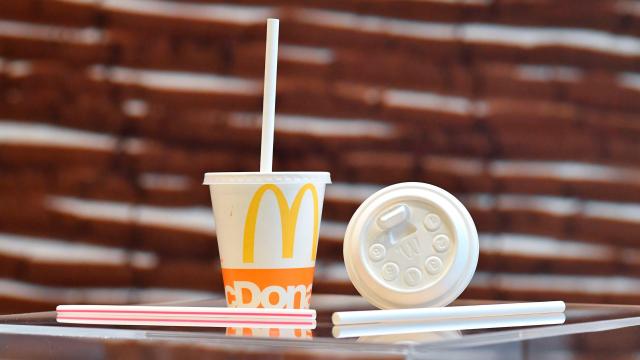The latest battle over right-to-repair is playing out in your local McDonald’s, and it could dictate how franchise owners are allowed to fix their perpetually-broken McFlurry machines.
If you’ve been to a McDonald’s at any point in the last century, you’re likely familiar with the harrowing experience of being denied the frosty treat that you crave because the McFlurry machine is broken yet again. As it turns out, being broken is sort of a hallmark of McFlurry machines: Not only are they inherently fragile — needing to withstand both cold ice cream temperatures and the heating cycles that blast them during the cleaning process — but they’re also powered by janky software and “flawed code that caused the machines to malfunction,” according to a lawsuit filed against the company that produces the machines in May.
That company, Taylor, is a particularly egregious purveyor that serves as a perfect example of the exact business model right-to-repair advocates are trying to abolish: sell businesses a persnickety machine that’s likely to break down, prevent them from understanding exactly where the malfunction is occurring, and then help yourself to a healthy cut of the distributors’ profit from the resultant repairs. It’s a racket that’s so widely understood, it prompted the creation of a new company, Kytch, which manufactures a diagnostic tool specifically designed to help McDonald’s franchise owners fix their own McFlurry machines.
In a recent legal victory, a judge awarded a temporary restraining order against Taylor after Kytch had alleged in a complaint that the McFlurry machine manufacturer had gotten its hands on a Kytch Solution Devices with the express intention of learning its trade secrets. The complaint also alleged that Taylor had told McDonald’s and its franchisees to stop using Kytch machines on the grounds that they were dangerous, and that the company had begun development on its own version of the Kytch system at the same time.
“These guys did a really effective job at frightening off all of our customers and investors so we’re hoping the public will support our case in the name of justice, right to repair and humanity,” Kytch cofounder Jeremy O’Sullivan told Motherboard. “We still have some diehard customers sticking with us. Though few in comparison to what we once had before McDonald’s and Taylor called our product dangerous.”
As a result of the court order, Taylor now has 24 hours to turn over all its Kytch Solution Devices. “Defendants must not use, copy, disclose, or otherwise make available in any way information, including formula, pattern, compilation, program, device, method, technique, or process obtained by any of them,” the court document said.
“We are optimistic that the truth will prevail,” Kytch co-founder Melissa Nelson told Motherboard. “It’s disgusting that such lengths were taken to steal our trade secrets, destroy our business, and to stand in the way of modernising kitchens. Kytch is just a small piece of the broader right-to-repair movement. But our case makes clear that it’s past time to end shady business practices that create hundreds of millions of dollars of unnecessary repair fees from ‘certified’ technicians.”
